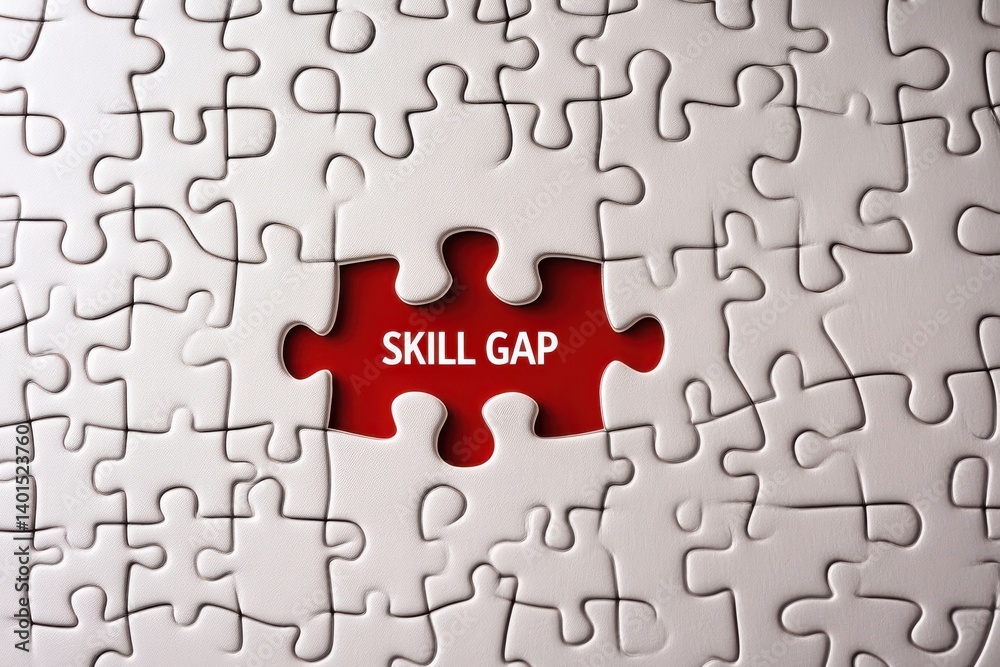The engineering industry faces a critical challenge. Demand for energy and technology infrastructure solutions is rising, while skilled engineers remain scarce. This nationwide talent shortage risks firms’ ability to meet growing needs, making retention and engagement crucial. Human resources professionals, with support of and in collaboration with company leaders, must implement innovative strategies that go beyond traditional approaches—focusing on engaging, developing, and retaining top talent in a highly competitive landscape.
Retention Strategies: Investing in Employee Growth and Engagement
Attracting talent marks the first step, and retaining top employees remains equally critical. Today’s workforce seeks more than a paycheck—talent is looking for growth, innovation, and purpose. To ensure long-term engagement and job satisfaction, companies must implement comprehensive retention strategies, including:
- Professional Development Programs: Professional development programs provide ongoing learning and improvement for employees. It’s essential to offer various options, including mentorship, technical training, and leadership development. Company-sponsored certifications enhance skills, enabling employee growth. This investment increases engagement, loyalty, and workforce capabilities, fostering long-term success while retaining top talent.
- Work-Life Balance & Employee Well-Being: Beyond competitive salaries, employees value workplace flexibility, mental health support, and remote work options. Offering flexibility, wellness programs, and mental health resources improves engagement and minimizes burnout.
- A Culture of Recognition & Purpose: Engineers are most engaged when they recognize the impact of their contributions. Acknowledging successes, encouraging teamwork, and establishing formal recognition initiatives like innovation awards help strengthen commitment.
Adapting to Industry Trends: The Future of Work
The workplace evolves rapidly, requiring HR leaders to remain agile and forward-thinking. To stay competitive and attract the next generation of engineering talent, companies implement workforce solutions such as:
- Embracing Remote & Hybrid Work Models: Flexible work arrangements broaden the talent pool and support employees’ work-life integration needs. Effective remote work programs backed by robust collaboration tools and communication structures ensure productivity and team cohesion as the needs of all team members are addressed. Research by Stanford economist Nicholas Bloom found that adopting a hybrid work model, where employees worked from home two days a week, led to a 33% reduction in employee resignations. Notably, women, non-managers, and employees with long commutes were the least likely to leave their jobs under this arrangement.
- Investing in Cutting-Edge Technology & Automation: Using tools that reduce manual work and support better collaboration leads to more engaged teams and improved productivity.
- Upskilling & Reskilling Initiatives: As engineering technology evolves, ongoing education is vital. Promoting employee involvement in industry conferences, online training, and internal knowledge-sharing workshops enhances skills, with built-in incentives to ensure employees feel their efforts are acknowledged.
Fostering an Engaging Work Environment
A company’s success is directly linked to workplace culture. Beyond recruitment and retention, organizations must foster an environment where employees feel valued, empowered, and connected. To do so, companies should consider:
- Creating a Destination Workplace for All: HR leaders are at the forefront of shaping organizations into destination workplaces where people feel connected, valued, and empowered to be their authentic selves. This requires more than just implementing programs; it demands a deeply embedded, people-first culture led by engaged managers who foster connection, act on employee feedback, and create space for continuous growth and belonging. Whether through ERGs, leadership development, or cross-functional engagement efforts, the goal is to build an employee experience that strengthens retention, fuels innovation, and positions the organization to thrive in a rapidly evolving world.
- Cross-Functional Collaboration Opportunities: Encouraging engineers to engage with various areas of the company broadens their understanding of the business landscape. This interaction fosters interdisciplinary innovation—where unique ideas and approaches from different fields collaborate to create novel solutions—and enhances career mobility. By gaining insights into multiple aspects of the business, engineers can develop a more holistic approach to problem-solving and leadership, making them more versatile and valuable in their roles.
- Employee-Led Growth Initiatives: Leadership training programs, rotational assignments, and innovation challenges allow employees to acquire new skills and make their work more engaging. Employee-driven development empowers individuals to take charge of their careers: they can seek out opportunities, connect with others in similar roles, pinpoint their skill gaps, and pursue new avenues to enhance those skills.
The Road Ahead: Shaping the Future of Engineering Talent
Addressing the engineering skills shortage requires HR professionals to be proactive, strategic, and adaptable. Organizations that embrace a comprehensive approach, investing in retention, staying ahead of workforce trends, and fostering an inclusive and engaging work environment—position themselves for sustainable success.
Workforce challenges remain significant, but solutions are available. Companies that take bold action secure top talent and establish themselves as industry leaders shaping the future of engineering. Creating a workplace culture that attracts, nurtures, and retains the best engineers will help shape the next generation of talent and drive innovation for years to come.
Sara Chapman is the Director of HR & Business Services at Ulteig, where she brings over 20 years of human resources experience to drive transformative culture and performance initiatives. A strategic, results-driven leader, Sara specializes in implementing enterprise-wide talent strategies that fuel growth and organizational health. Since joining Ulteig in 2024, she has focused on aligning people, purpose, and performance to meet the evolving needs of the business.




